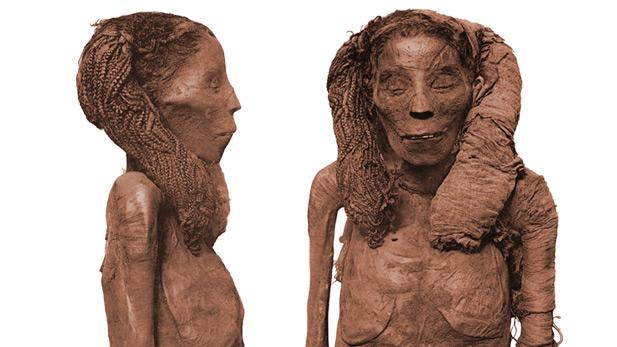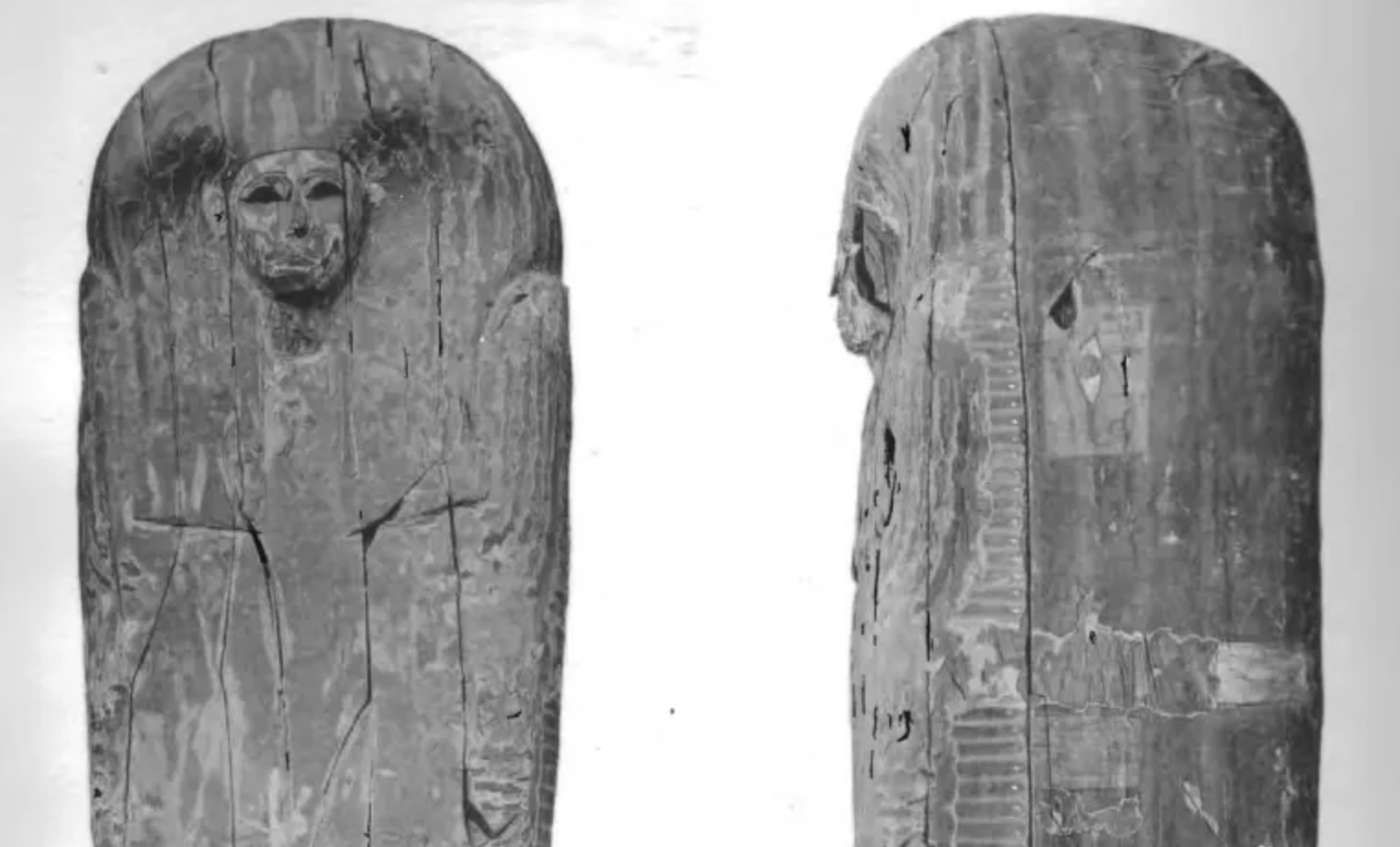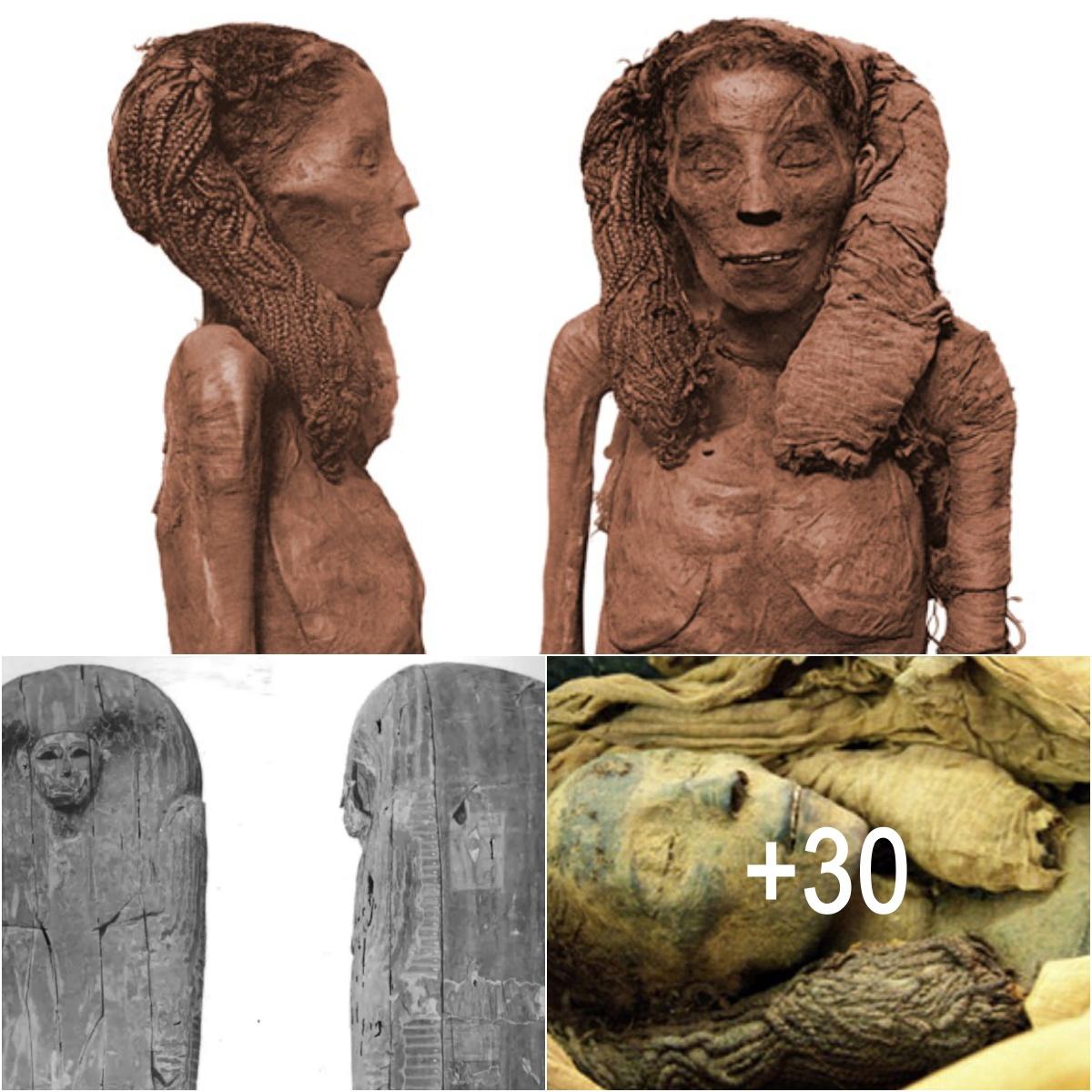Let’s delve into another mummy found in the Deir el-Bahri cache, which may be one of the “most perfect examples of embalming…from the time of the early 18th Dynasty.”
Lady Rai was an ancient Egyptian woman from the early 18th Dynasty. Little is known about her life, but she served as a nursemaid to Queen Ahmose-Nefertari. We have no evidence of her parentage, but she was no doubt from some elite family as she was most likely buried in the elite burials in Deir el-Bahri and Thebes.

Lady Rai’s original tomb is not known, but it was most likely located in antiquity, which is why she was reburied in the cache in Deir el-Bahari. She was originally buried in two coffins, but it seems her outer coffin is all that was preserved. However, Rai’s body was not found inside it.
The only personal belongings of Lady Rai that have been found were a single barrel-shaped carnelian bead on her right wrist. This is just a fraction of what Rai’s jewelry was before.

As mentioned previously, G. Elliot Smith described Lady Rai’s mummy as one of the most perfect examples of 18th Dynasty embalming and “the last unviolated” of the existing female mummies. Smith unwrapped the mummy on January 26th, 1909. Rai was a slender woman, only about 4 feet 11 inches tall. She was estimated to be about 30 or 40 years old when she died around 1530 B.C.E.

Her scalp retained abundant remnants of what appears to be her own hair, not a wig, which would have been more common. This was styled in tightly plaited groups of braids down to her chest. Rai’s teeth only had slight wear. In 2009, the mummy was CAT scanned, which revealed that she had a diseased aortic arch and thus is the oldest known mummy with evidence of atherosclerosis.





